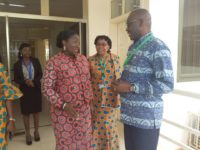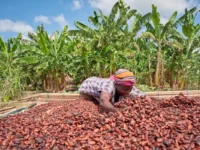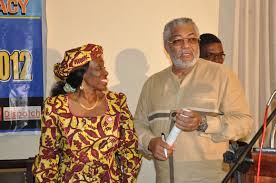 A lecturer at the Agriculture faculty of the Kwame Nkrumah University of Science and Technology Prof. S.C. Fialor has told rawgist.com in an exclusive interview that large class sizes are becoming a big challenge to the holistic study of agriculture in the country’s tertiary institutions.
A lecturer at the Agriculture faculty of the Kwame Nkrumah University of Science and Technology Prof. S.C. Fialor has told rawgist.com in an exclusive interview that large class sizes are becoming a big challenge to the holistic study of agriculture in the country’s tertiary institutions.
“You would know how to drive a tractor by the time you finished an Agriculture degree in my time due to lower numbers but the numbers have increased. It may be a failure of the system”. He laments that though more and more people are getting qualified to pursue degrees in Agriculture, facilities are not being expanded. “It’s more a challenge of the times. The class sizes exceed the capacity to do any effective practical oriented agricultural training”.
He is also unhappy that people pursue Agriculture as a last resort after failing to gain admission to pursue Medicine, Pharmacy and other courses of their choice.
“The focus of Agriculture training should be to make agriculture look businesslike so people don’t see it as a dirty job.We are not doing that quite yet.”
He says though KNUST has started some programmes like Agribusiness Management, Post Harvest Technology and others, “we still need to emphasize field applications of what we teach”.
“If students don’t see a future in the degree you are offering them, they will come with a lot of reservations but the p icture will change if they believe they will be self-sufficient after a course in agriculture”, he explained to rawgist.com’s Bernard Buachi.
icture will change if they believe they will be self-sufficient after a course in agriculture”, he explained to rawgist.com’s Bernard Buachi.
Prof. Fialor believes relevant linkages in programmes will help make a world of difference. “As we are now, we have Nutrition which is basically based on agriculture, far away in another faculty and Agriculture is in another faculty”. When you are able to synthesize agriculture for students to understand that when you learn how to produce cassava, that cassava can be translated into bread and show them the nutritional values of bread, and it’s all within the same faculty, a student can take a line of action and end up becoming a business person”.
The Agriculturist opines that the solutions should start from the Universities. He believes that even though the Universities are constrained by a lack of resources, they have to be innovative.





